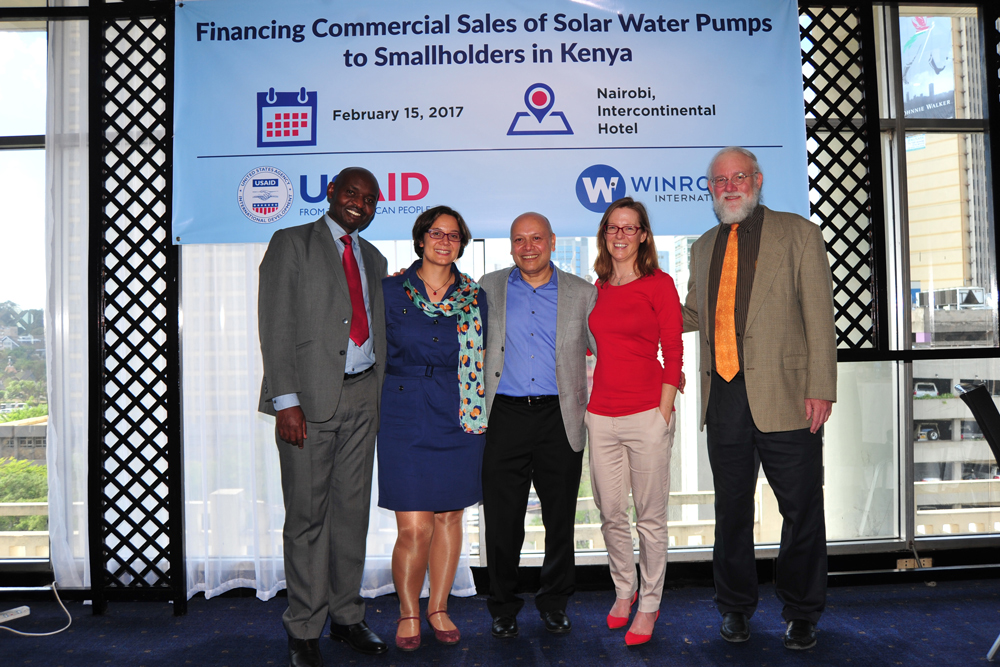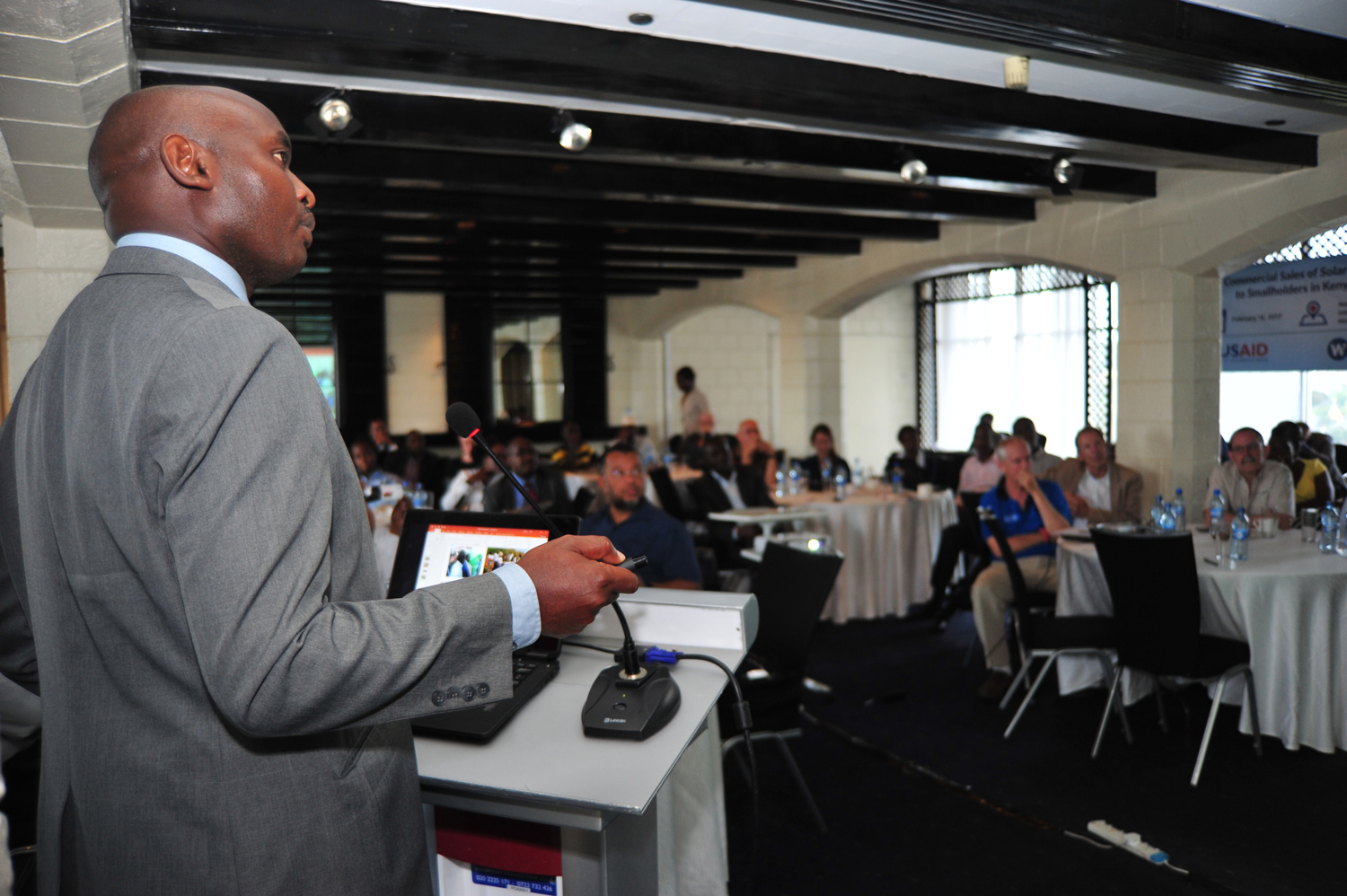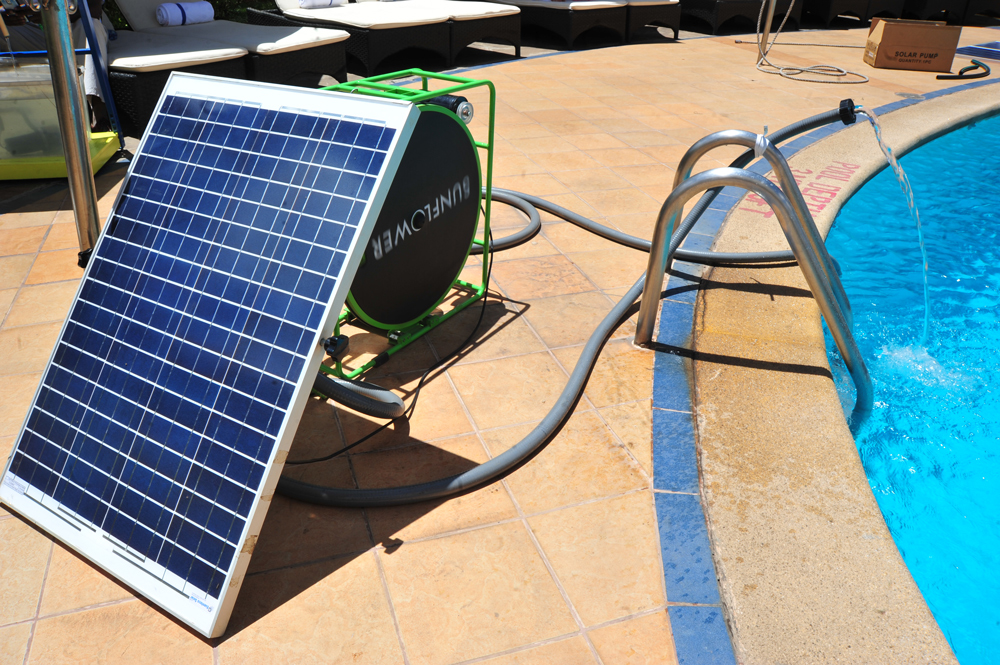
In Kenya, Blue Skies for Solar Water Pumps
Winrock event promotes lending, says access to credit is key.
By Jenn Holthaus
Solar water pumps can greatly boost incomes by improving yields and allowing farmers to grow high-value horticulture crops during the dry season. On February 15, Winrock hosted a convening in Nairobi to discuss smallholder financing for these pumps.

Through the USAID/Kenya Smallholder Solar Irrigation project, Winrock has spent two years working to increase solar pump sales to smallholders. We collaborated closely with the USAID/Kenya Agricultural Value Chain Enterprises (KAVES) project, which is connecting thousands of small farmers to key value chains, including horticulture. Together we have demonstrated solar pumps to more than 16,000 farmers. Access to credit is a key bottleneck, and Winrock is now focusing on scaling up solar pump lending.
We originally planned for 40 participants, but we had to get a bigger room at the last minute when 76 people registered for the event! We were pleased with the huge turnout from the Kenyan finance sector, which included representatives from seven Kenyan financial institutions and several international impact investors.

The main message of the day, echoed by Winrock, KAVES, farmers and agricultural aggregators, was to question why it’s so difficult for smallholders to finance solar water pumps, given that they increase farmer incomes. This message was a clarion call to the Kenyan financial sector that solar pumps have arrived, demand is strong, and they need to get in the game by offering solar pump loans. Winrock’s three pilot finance partners — Juhudi Kilimo, EcoSmart and KUSCCO — each made presentations about their new solar pump loan products.
We had planned for four solar pump retailers to set up their pumps outside the hotel for the event. So when we woke up to overcast skies that morning we were nervous — after all, solar pumps don’t pump without sun! But the skies cleared just in time, and it was awesome to see crowds gathering around each of the pumps, which currently range from US $350 to US $1,500 depending on the power needed to pump the water.

In the afternoon we gave participants a chance to connect during business-to-business meetings. Our microfinance and solar water pump retailer partners were able to talk with impact investors and larger commercial banks about possible partnerships.
In the days after the event four new financial institutions contacted us with requests to partner on creating solar water pump loan products. We will start the second phase of the work this summer, and we look forward to scaling up lending with these pioneers.
Related Projects

